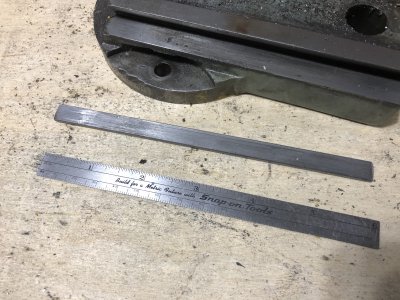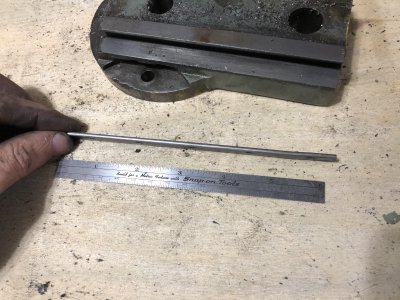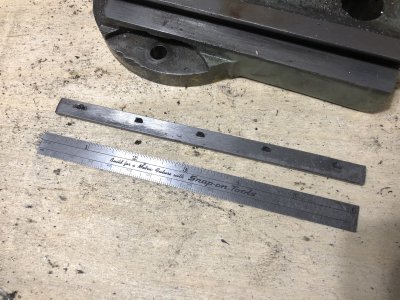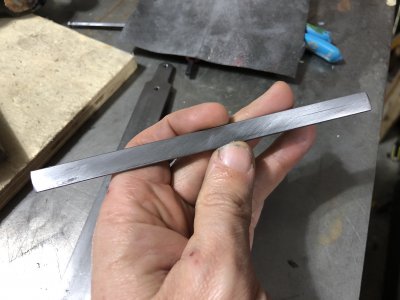- Joined
- Nov 9, 2018
- Messages
- 377
This is the original top slide gib out of a Clausing 5400. It is made of some sort of mild steel. Not the best bearing material.
As you can tell, it is damaged. I’ve already straightened it out some, and still have a ways to go straightening it.
I’m thinking about making a new one from bronze. I know bronze is a much better bearing material, because bronze is naturally porous and retains oil. Bronze tends to just wear, whereas steel tends to gum up into itself.
So, what are your thoughts on making a new bronze gib?
From what I’ve seen, bronze gibs don’t seem very common, what do you suppose is the reason for that?
As you can tell, it is damaged. I’ve already straightened it out some, and still have a ways to go straightening it.
I’m thinking about making a new one from bronze. I know bronze is a much better bearing material, because bronze is naturally porous and retains oil. Bronze tends to just wear, whereas steel tends to gum up into itself.
So, what are your thoughts on making a new bronze gib?
From what I’ve seen, bronze gibs don’t seem very common, what do you suppose is the reason for that?





